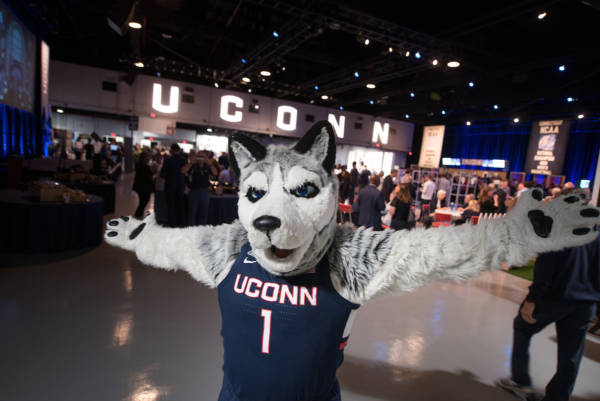Not sure who to vote for in 2016? UConn professors can help.

A Quinnipiac poll recently found that a majority of Republicans in Connecticut support presidential candidate Donald Trump.
Trump is considered to be an “outside of the establishment” candidate—he hasn’t previously held a political office, although he has been known to support politicians in the past. Other Republican outsiders, such as Ben Carson and Carly Fiorina, are also showing strong in the polls.
What does this mean for voters? We’ll be hosting an Oct. 21 alumni event in Stamford on the 2016 election, led by political science professor David Yalof and featuring fellow professors Ronald Schurin and Evelyn Simien.
Yalof was gracious enough to offer a sneak peek:
What should we make of Trump’s current popularity? Is he a product of the media or does he truly speak for many Americans?
We have a long tradition in this country of seeking so-called “outsiders” from the normal political establishment for public office, including the presidency. Sometimes generals like Grant and Eisenhower fit the bill. Other times we look to the business world for outsiders—perhaps that explains how businessman Ross Perot garnered nearly 20 percent of the presidential vote in 1992. In that sense, Trump (along with Carson and Fiorina) is invoking this American tradition. Trump probably does represent the true voice of many Americans, but 25 percent of the Republican primary vote amounts to less than 10 percent of the overall population.
With the vast range of information (and misinformation) out there, how can voters sift through the noise to determine where candidates actually stand on issues?
In this age of information saturation it has indeed become harder to determine where candidates truly stand on the issues. Their shifting positions make things harder still. I always urge my students to look at what candidates actually do, rather than what they say. From whom do they accept contributions? How did they vote as younger politicians when they thought nobody was watching? Finally, when they are truly challenged as to their views in unexpected ways, how do they respond off the cuff? In my opinion it’s hard to learn anything of value from pre-vetted, canned answers.
There are currently about 25 viable Republican and Democratic candidates running in the 2016 presidential election. With the huge range of viewpoints represented, what’s the best way to determine the person who most aligns with your viewpoints—especially when watching the debates?
I’m not sure there’s much that can be learned from debates. With so many candidates fighting for limited time, entertainment is at a premium, and not information. I would urge debate watchers to not accept what the candidates say as the gospel. When they refer to a position they took as governor, look up press coverage of the decision to see if you have been given the full story. If someone refers to a troubling video, go on YouTube and watch it yourself.
What can attendees expect from this panel? What are the areas of expertise that will be represented?
I hope attendees learn enough from this panel so that they can evaluate and critically appraise the so-called “Trump effect” for themselves, rather than simply accepting the opinions of others. Is this really so unprecedented? What are the biggest obstacles a Trump candidacy faces? Are Trump’s critics unfairly dismissing his candidacy? How might his lack of political experience actually benefit him with voters in a general election? Do Trump’s position on issues even matter, and if not, what does that tell us about the current state of American politics?
